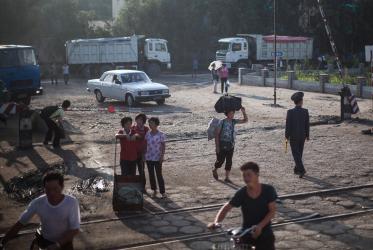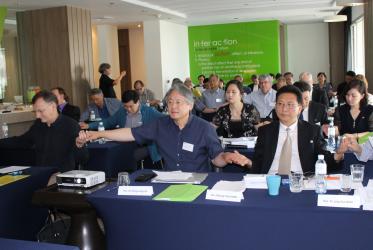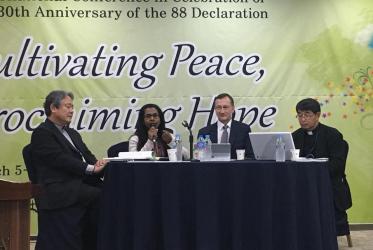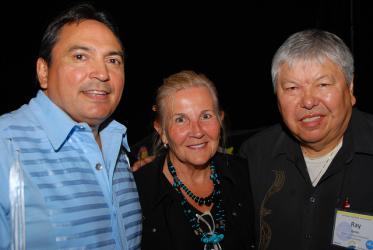Displaying 1 - 20 of 24
Peace and unity on the Korean Peninsula matters globally
25 February 2021
WCC condemns attack at Hanukkah celebration in New York City
29 December 2019
The cry of the Papuans in Indonesia
14 November 2019
Church in Bali empowers youth to break cycle of poverty
18 March 2019
WCC welcomes “powerful sign of hope” on Korean Peninsula
08 March 2018
Emily Welty: tide of hope for a world free from nuclear weapons
19 September 2017
"We have our work cut out for us"
10 August 2017














